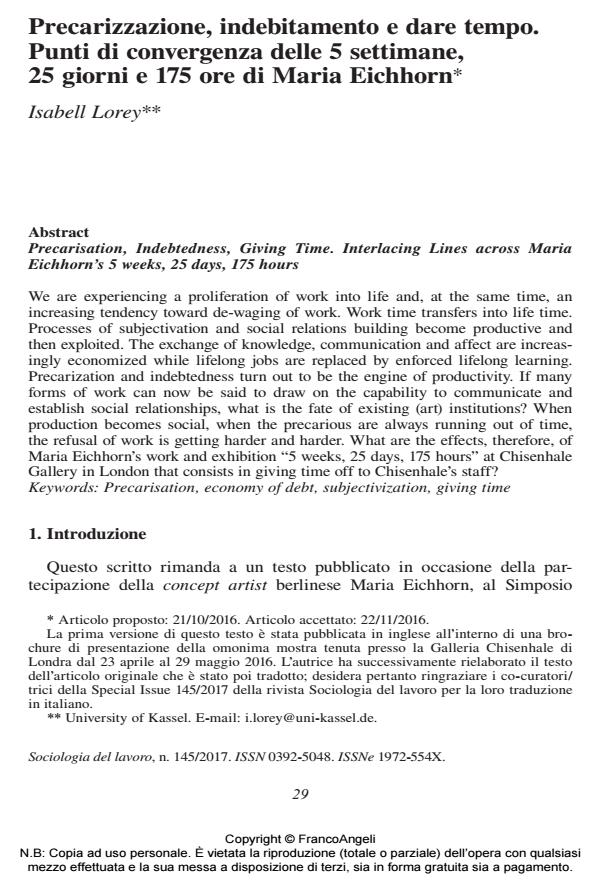Precarizzazione, indebitamento e dare tempo. Punti di convergenza delle 5 settimane, 25 giorni e 175 ore di Maria Eichhorn
Titolo Rivista SOCIOLOGIA DEL LAVORO
Autori/Curatori Isabell Lorey
Anno di pubblicazione 2017 Fascicolo 2017/145
Lingua Italiano Numero pagine 15 P. 29-43 Dimensione file 109 KB
DOI 10.3280/SL2017-145002
Il DOI è il codice a barre della proprietà intellettuale: per saperne di più
clicca qui
Qui sotto puoi vedere in anteprima la prima pagina di questo articolo.
Se questo articolo ti interessa, lo puoi acquistare (e scaricare in formato pdf) seguendo le facili indicazioni per acquistare il download credit. Acquista Download Credits per scaricare questo Articolo in formato PDF

FrancoAngeli è membro della Publishers International Linking Association, Inc (PILA), associazione indipendente e non profit per facilitare (attraverso i servizi tecnologici implementati da CrossRef.org) l’accesso degli studiosi ai contenuti digitali nelle pubblicazioni professionali e scientifiche.
We are experiencing a proliferation of work into life and, at the same time, an increasing tendency toward de-waging of work. Work time transfers into life time. Processes of subjectivation and social relations building become productive and then exploited. The exchange of knowledge, communication and affect are increasingly economized while lifelong jobs are replaced by enforced lifelong learning. Precarization and indebtedness turn out to be the engine of productivity. If many forms of work can now be said to draw on the capability to communicate and establish social relationships, what is the fate of existing (art) institutions? When production becomes social, when the precarious are always running out of time, the refusal of work is getting harder and harder. What are the effects, therefore, of Maria Eichhorn’s work and exhibition "5 weeks, 25 days, 175 hours" at Chisenhale Gallery in London that consists in giving time off to Chisenhale’s staff?
Parole chiave:precarizzazione, economia del debito, soggettivazione, dare tempo
Isabell Lorey, Precarizzazione, indebitamento e dare tempo. Punti di convergenza delle 5 settimane, 25 giorni e 175 ore di Maria Eichhorn in "SOCIOLOGIA DEL LAVORO " 145/2017, pp 29-43, DOI: 10.3280/SL2017-145002